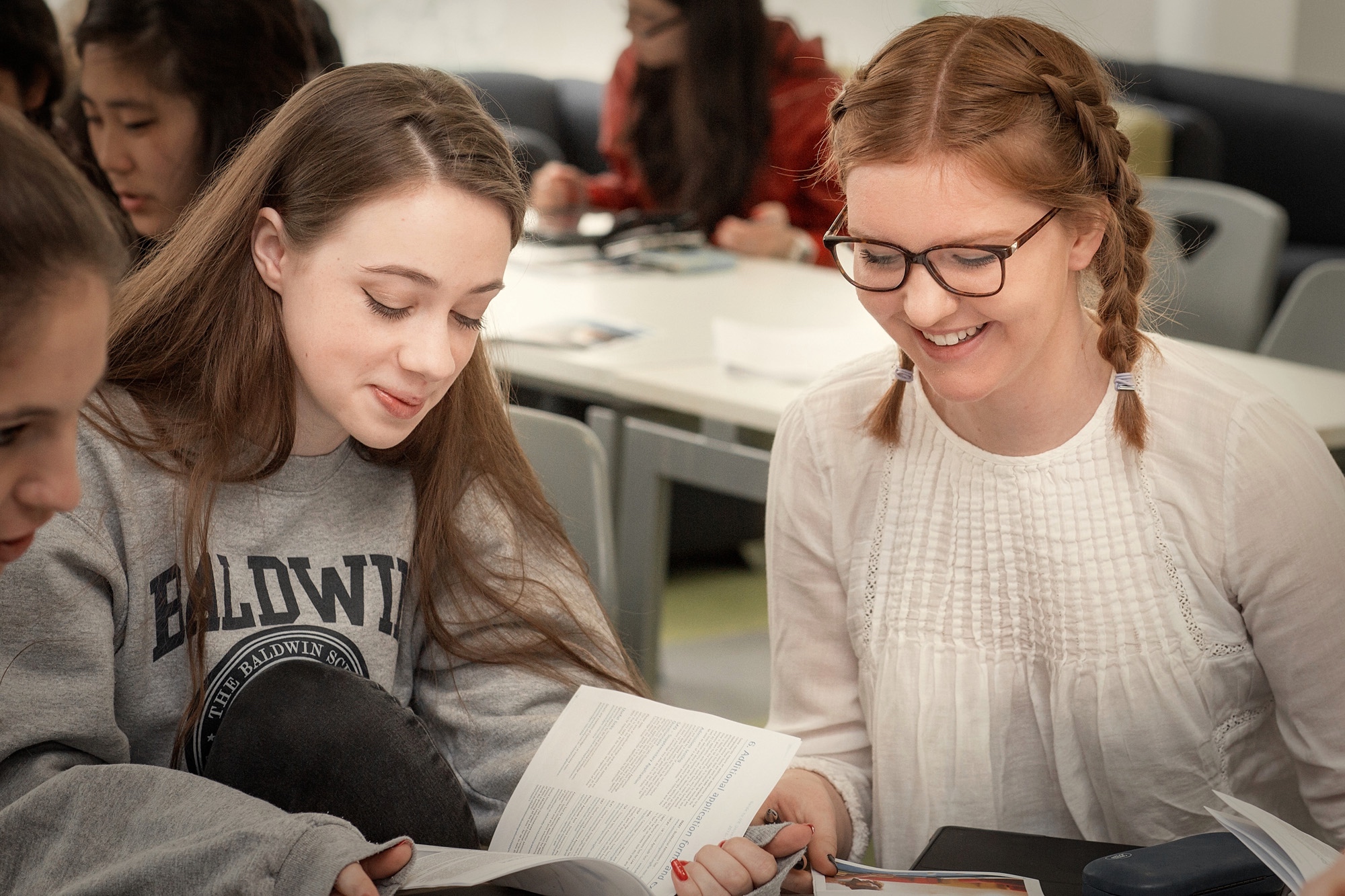
Further Mathematics
If you are aiming to study a highly quantitative degree at a top university, or if you just love the beauty and elegance of mathematics and want to study lots of different aspects of it, then the Mathematics/Further Mathematics ‘double’ is the course for you.
 You will be doing a lot of maths over these two years and be challenged intellectually throughout. Whereas the pace may be a striking difference to your previous experiences in the first year, the algebraic complexity steps up a gear in the second year.
You will be doing a lot of maths over these two years and be challenged intellectually throughout. Whereas the pace may be a striking difference to your previous experiences in the first year, the algebraic complexity steps up a gear in the second year.
If you are tenacious, accurate and enjoy algebraic puzzles, with very secure mathematical foundations, you will probably enjoy this course.
With a core of students often studying many of the same subjects, you will be in a group of like-minded peers, keen to pursue maths for its own sake.
Course content
The Further Mathematics course includes all of the topics from the Mathematics course, but goes further into each of the topic areas:
- The Pure Mathematics topics extend the use of calculus further and introduce new concepts such as matrices and complex numbers.
- The Statistics topics explore a wider range of probability distributions and statistical tests.
- The Mechanics topics develop the theory to model more complex situations.
- There is also the opportunity to tackle other areas of maths, not previously met in school, such as decision and discrete maths.
A calculator that is more powerful than the standard scientific ones is required for A Level Mathematics. A graphical display calculator can give you a distinct advantage on some A Level exam questions. As such we strongly recommend purchasing a graphical display calculator and can offer guidance with this.
Assessment
Students will follow the linear OCR Further Mathematics course. All assessment will be at the end of the two year course. As well as the three (single) A Level papers, students will take four further papers, each of 90 minutes in length.
These are:
- Two mandatory further pure maths papers;
- Two options from a choice of four areas: additional pure, statistics, mechanics and discrete maths.
FAQs
What support is available for students doing Maths in the Sixth Form?
Plenty! There will be timetabled sessions of support - normally at lunchtime, although this is broadened as we approach exam time in the Spring Term. You will find, too, that staff are more than happy to provide support at other times, outside of lessons, either in person or by email. It is important that you are honest and keep talking with staff about how you are getting on. Support is also given to students who are preparing for aptitude tests, as part of their university application. Such tests include STEP, TMUA and MAT.
What enrichment opportunities are there in Maths?
All students who take Maths take part in competitions throughout the two years of their course. These include the UKMT Senior Maths Challenge (and any subsequent rounds if students qualify) and the BEBRAS Challenge. Students are encouraged to take an active part in the MEI RITANGLE Competition. There are regular, timetabled, sessions of Maths enrichment. These help students to prepare for the competitions referred to above, as well as simply giving the opportunity for healthy mathematical discussion. In addition to these, there are opportunities, on an occasional basis, for students to take part in educational visits of a mathematical nature.
Do you think I am suitable for A Level maths?
If you have achieved, or anticipate that you will achieve at least a grade 7 at GCSE/IGCSE Maths, then you have the necessary ability to consider Maths courses in the sixth form. Most important is to think about why you want to take a Maths course. It may be a necessary qualification in order to allow you to follow your chosen career path. The most important thing, however, is to enjoy the challenge of tackling Maths problems, and to be prepared to spend hours working with Maths.
Is there any flexibility about grade requirements for A Level?
Not really - if you have taken GCSE/IGCSE, the requirements are:
7 or above for Single A Level
8 or 9 for Further A Level
If you have not taken GCSE/IGCSE, then applications are considered on an individual basis.
How many teachers am I likely to have for Maths?
Single A Level - normally two teachers. This would be one for Pure and Statistics, one for Pure and Mechanics.
Further A Level - normally three teachers. This would be one for Pure and Statistics, one for Pure and Mechanics and then a third for Pure Maths, including much of the Further Pure Maths content.
Am I at a disadvantage if I haven’t done Additional Maths in Year 11?
It is an advantage if you have taken Additional Maths, or at least if you have met some of the content, without necessarily taking the exam. Having a previous knowledge of some topics, such as differential and integral calculus, exponentials and logs, and the binomial expansion, certainly gives you a head start. That said, these topics are taught in Year 12 with no prior understanding assumed, so Additional Maths is not a requirement for A Level (Single or Further).
What is the main difference between GCSE and A Level Maths? Is A Level a lot harder?
The main difference is in terms of the pace at which you are expected to tackle problems. For example, algebraic manipulation needs to be performed more quickly than in Year 11, whilst avoiding errors, thus allowing students to move on to the more challenging part of the question.
Clearly, some concepts which you will be introduced to are more difficult than you have seen before, however it is the nature of the problems which you will find hard. Questions are often quite “open”, so that students need to decide which method might be appropriate, in order to move forward.